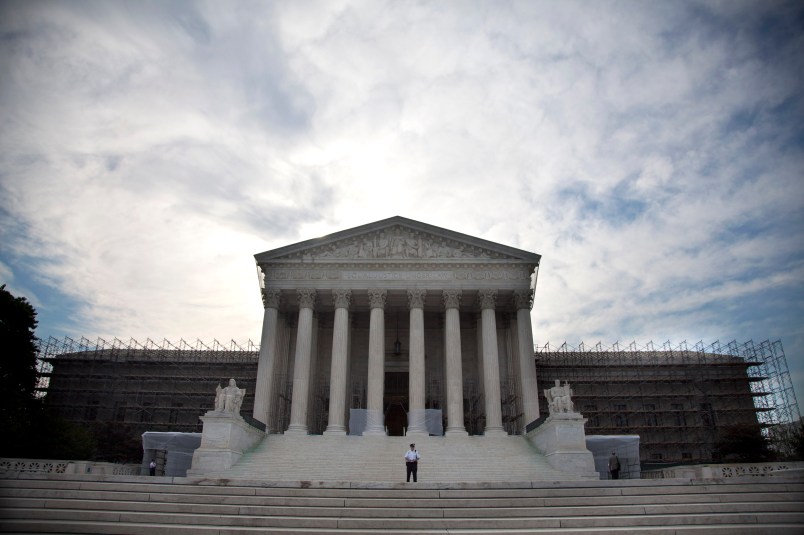Prosecutors and legal experts were outraged and angered by a recent Oklahoma court ruling that determined state law doesn’t criminalize forced oral sex with an unconscious or intoxicated victim.
According a report from The Guardian published Wednesday, the case in question involved a 17-year-old boy who allegedly sexually assaulted a 16-year-old-girl after he drove her home following a night of drinking. Witnesses said that the girl was unconscious, while the boy who drove her home said she consented to oral sex, according to the report.
The boy’s DNA was later found on the girl and he was charged with forcible oral sodomy, according to the report. A trial judge dismissed that case, and it was then brought to Oklahoma’s criminal appeals court, which on March 24 unanimously affirmed that the alleged assault did not fall under the state’s forcible sodomy law.
“Forcible sodomy cannot occur where a victim is so intoxicated as to be completely unconscious at the time of the sexual act of oral copulation,” the decision read, according to The Guardian. “We will not, in order to justify prosecution of a person for an offense, enlarge a statute beyond the fair meaning of its language.”
Outrage over the decision was swift, with some criticizing the judge’s decision. But many legal experts suggested the law itself, with its murky definition of forcible sodomy, is to blame.
“This is a call for the legislature to change the statute, which is entirely out of step with what other states have done in this area and what Oklahoma should do,” Michelle Anderson, the dean of the CUNY School of Law, told The Guardian. “It creates a huge loophole for sexual abuse that makes no sense.”
According to state law, forcible sodomy is, among other things, “committed upon a person incapable through mental illness or any unsoundness of mind of giving legal consent or accomplished with any person by means of force, violence, or threats of force or violence accompanied by apparent power of execution regardless of the age of the victim or the person committing the crime.”
The assistant district attorney who led the case, Benjamin Fu, told The Guardian that as situations change, so should the law in order to protect victims.
“There is a recognition that social mores have changed, that the law should now try to protect sexual autonomy as opposed to sexual morality,” Fu said.
The 17-year-old boy’s attorney, however, said she was satisfied with the ruling and with the court’s interpretation of the law.
“There was absolutely no evidence of force or him doing anything to make this girl give him oral sex other than she was too intoxicated to consent,” Shannon McMurray told Oklahoma Watch.







“There was absolutely no evidence of force or him doing anything to make
this girl give him oral sex other than she was too intoxicated to
consent,” Shannon McMurray said.
“There is nothing here to show a murder took place other than this bullet-riddled body.”
“We have no evidence of armed robbery other than the masked man holding a gun and demanding money.”
“unsoundness of mind of giving legal consent”
How does being blackout drunk not qualify for that?
That’s right. It’s all right there in Leviticus. Sheesh, you people need to study the Bible more.
Oh my. I foresee thousands upon thousands of Republican men going without sleep and refusing to have colonoscopy’s.
This had the potential to be a correct ruling if the language of the statute was indeed poor and failed to cover this situation, BUT
"any unsoundness of mind of giving legal consent "
Clearly covers “so shitfaced that she’s unconscious” and the “force” definition part of the statute is preceded by the word “OR”, which indicates it is in the alternative, so I have to say this is definitely a couple Oklahoma judges judging the victim, not the criminal.